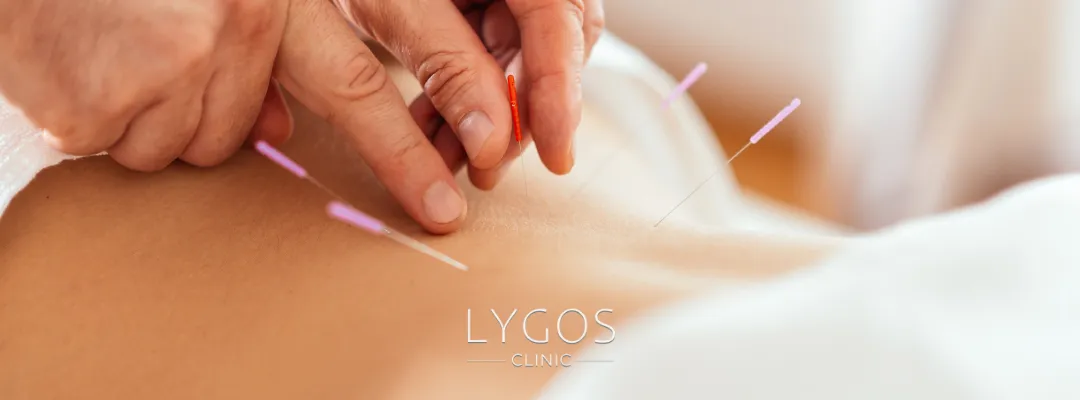Benefits of Acupuncture Treatment | LYGOS 2025

Acupuncture Treatment: A Comprehensive Guide to Its Benefits and Uses
Acupuncture treatment, an ancient healing technique rooted in traditional Chinese medicine, has gained significant recognition globally as a holistic approach to pain management and overall well-being. With its unique methods and wide range of applications, acupuncture treatment continues to intrigue both medical professionals and patients. This article examines the core principles of acupuncture, its diverse benefits, and its role in addressing a range of health concerns.
What Is Acupuncture Treatment?

Acupuncture is a therapeutic practice that involves inserting fine, sterile needles into specific points on the body to stimulate healing and balance energy flow, known as “qi” (pronounced “chee”). Originating in China over 2,500 years ago, acupuncture treatment is based on the concept that energy flows through pathways, or meridians, in the body.
Disruptions in this flow are believed to contribute to illness and discomfort. Scientific research has shown that acupuncture treatment can stimulate nerves, muscles, and connective tissues, enhancing blood flow and promoting the release of endorphins, the body’s natural pain-relieving chemicals.
Benefits of Acupuncture Treatment

Acupuncture treatment is a versatile practice that can address a wide range of health conditions. Some of its key benefits include:
- Enhanced Sleep Quality: Many individuals report better sleep after acupuncture sessions.
- Stress Reduction: Helps regulate the nervous system, alleviating stress and promoting relaxation.
- Digestive Health: It can alleviate symptoms of gastrointestinal disorders, including irritable bowel syndrome (IBS) and acid reflux.
- Enhanced Recovery: Frequently used by athletes and individuals recovering from surgery to expedite the healing process.
These benefits have made acupuncture treatment a sought-after alternative or complementary therapy in modern healthcare.
Acupuncture for Back Pain
Back pain is among the leading reasons individuals seek acupuncture. Research has shown that acupuncture treatment can effectively relieve both acute and chronic back pain. Acupuncture addresses back pain by stimulating the release of natural pain-relieving chemicals and reducing inflammation in the affected areas.
Improved blood circulation to the back muscles and spine also aids healing. Studies have demonstrated its effectiveness in relieving both acute and chronic back pain, particularly conditions such as herniated discs, sciatica, and muscle strains. For many, acupuncture treatment offers a safer alternative to pain medications or surgical interventions.
Acupuncture for Weight Loss

Acupuncture treatment is increasingly used as a supportive method for weight loss, particularly for individuals seeking a holistic approach. By targeting specific acupuncture points, the therapy helps regulate appetite, control cravings, and manage stress, which often contributes to overeating.
Additionally, acupuncture treatment may aid in metabolism regulation, potentially supporting weight management. Hormonal imbalances contributing to weight gain can also be addressed through targeted acupuncture treatments. While it is not a standalone solution for significant weight loss, combining acupuncture with a healthy diet and exercise regimen can amplify results.
How Does Acupuncture Work?
Acupuncture works by stimulating specific points on the body, known as acupoints. Thin, sterilized needles are inserted into these points at precise depths, targeting underlying tissues to promote healing. Scientifically, this process activates the nervous system, prompting the brain to release natural chemicals that alleviate pain and reduce inflammation.
It also enhances blood flow, delivering oxygen and nutrients to tissues needing repair. Traditional Chinese medicine explains acupuncture treatment as a way to restore energy balance by clearing blockages in the flow of qi. A typical session lasts 30 to 60 minutes, during which many individuals feel relaxed or even energized. Regular sessions often yield long-term improvements in health.
Risks of Acupuncture

When performed by a qualified practitioner, acupuncture treatment is generally safe.
- Minor Side Effects: Bruising, soreness, or slight bleeding at needle insertion sites.
- Infection: Using unsterilized needles can lead to infections, which is why it’s essential to choose a licensed acupuncturist.
- Dizziness or Fainting: Some individuals may feel lightheaded during or after treatment.
- Allergic Reactions: Rarely, people might experience an allergic reaction to needles or other materials used.
Consulting with a qualified practitioner ensures that acupuncture treatment is performed safely and effectively.
Are There Different Types of Acupuncture?
Yes, various styles of acupuncture cater to different needs, including:
- Traditional Chinese Acupuncture: Focused on restoring “qi” balance using diverse techniques.
- Japanese Acupuncture: Utilizes finer needles and gentler techniques.
- Electroacupuncture: Involves applying a mild electrical current to needles for enhanced stimulation, particularly effective for chronic pain management, such as migraines and arthritis.
- Auricular Acupuncture: Targets points on the ear, often used for addiction treatment and weight loss.
- Dry Needling: Although not technically acupuncture, it shares similarities and is used to relieve muscle pain.
Each type of acupuncture treatment has its specific applications, and a practitioner can help determine which method is best for you.
What Does Acupuncture Treat?
Acupuncture treatment has a wide range of applications, making it effective for treating conditions across various medical disciplines. It is commonly used for chronic pain management, including migraines, neck pain, and arthritis.
Neurological conditions such as nerve damage and stroke rehabilitation also benefit from acupuncture. Its holistic approach also makes it useful for respiratory conditions like asthma and sinusitis, further enhancing overall well-being. It also plays a role in women’s health, addressing menstrual cramps, infertility, and menopause symptoms.
Conclusion
By blending ancient wisdom with modern therapeutic insights, acupuncture treatment continues to offer a natural and comprehensive solution for managing pain, improving sleep, and supporting overall health. Whether seeking relief from pain, support for weight management, or improved overall health, acupuncture treatment offers a natural and holistic pathway to wellness.
While its mechanisms are still being studied, the positive experiences of countless individuals attest to its efficacy. Always consult a licensed acupuncturist to ensure safe and personalized treatment. For more detailed information about acupuncture treatment, please contact our expert.


